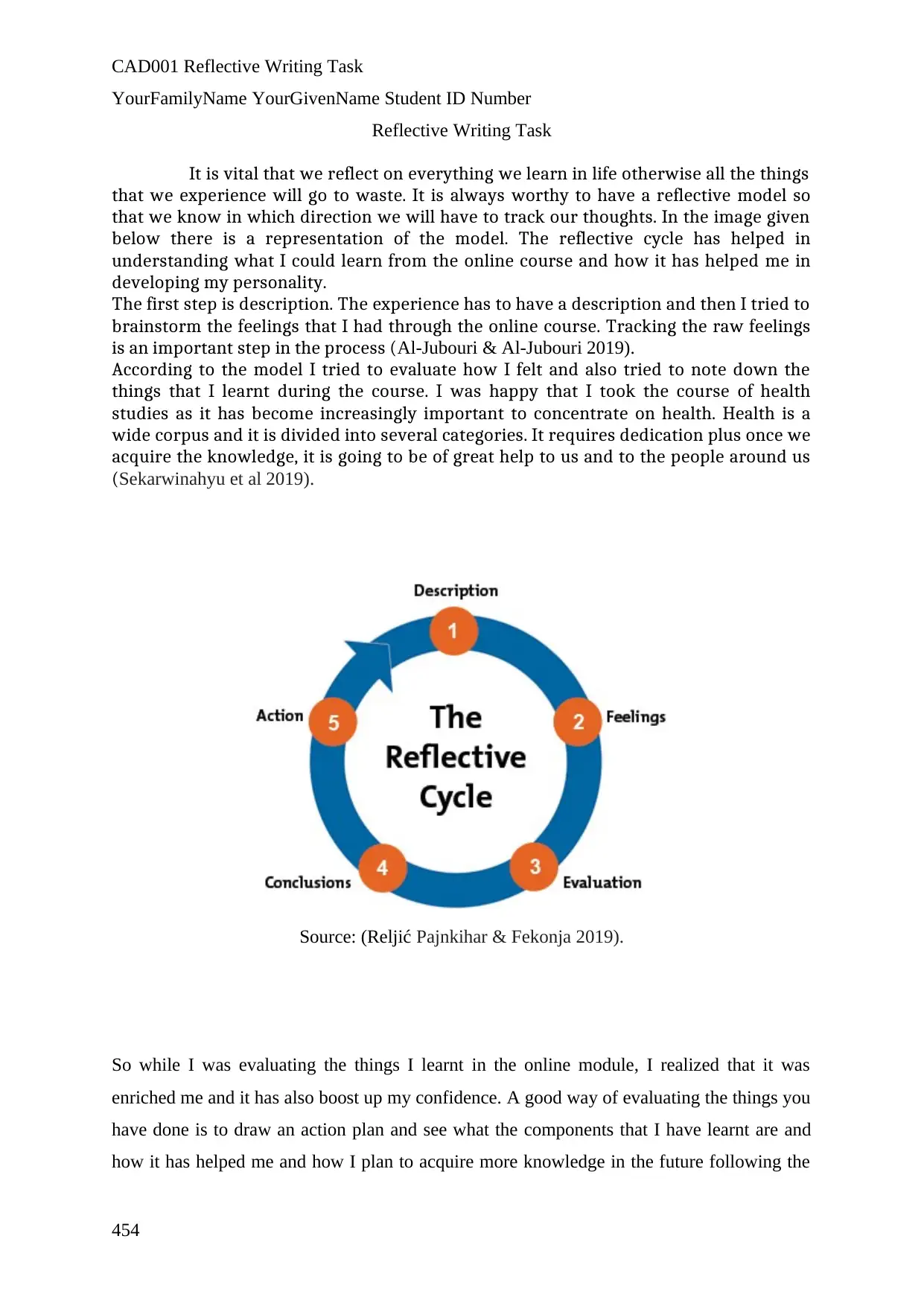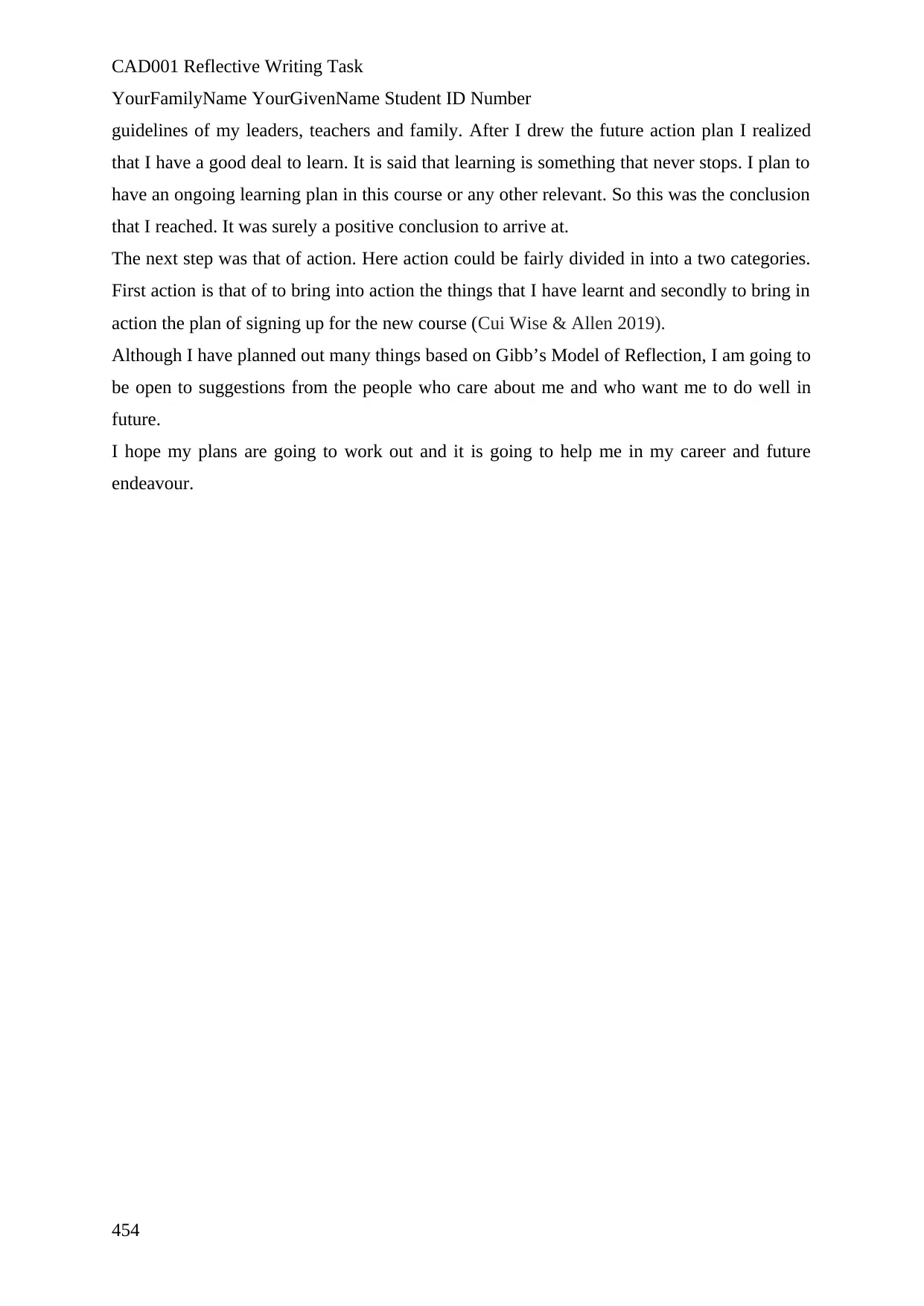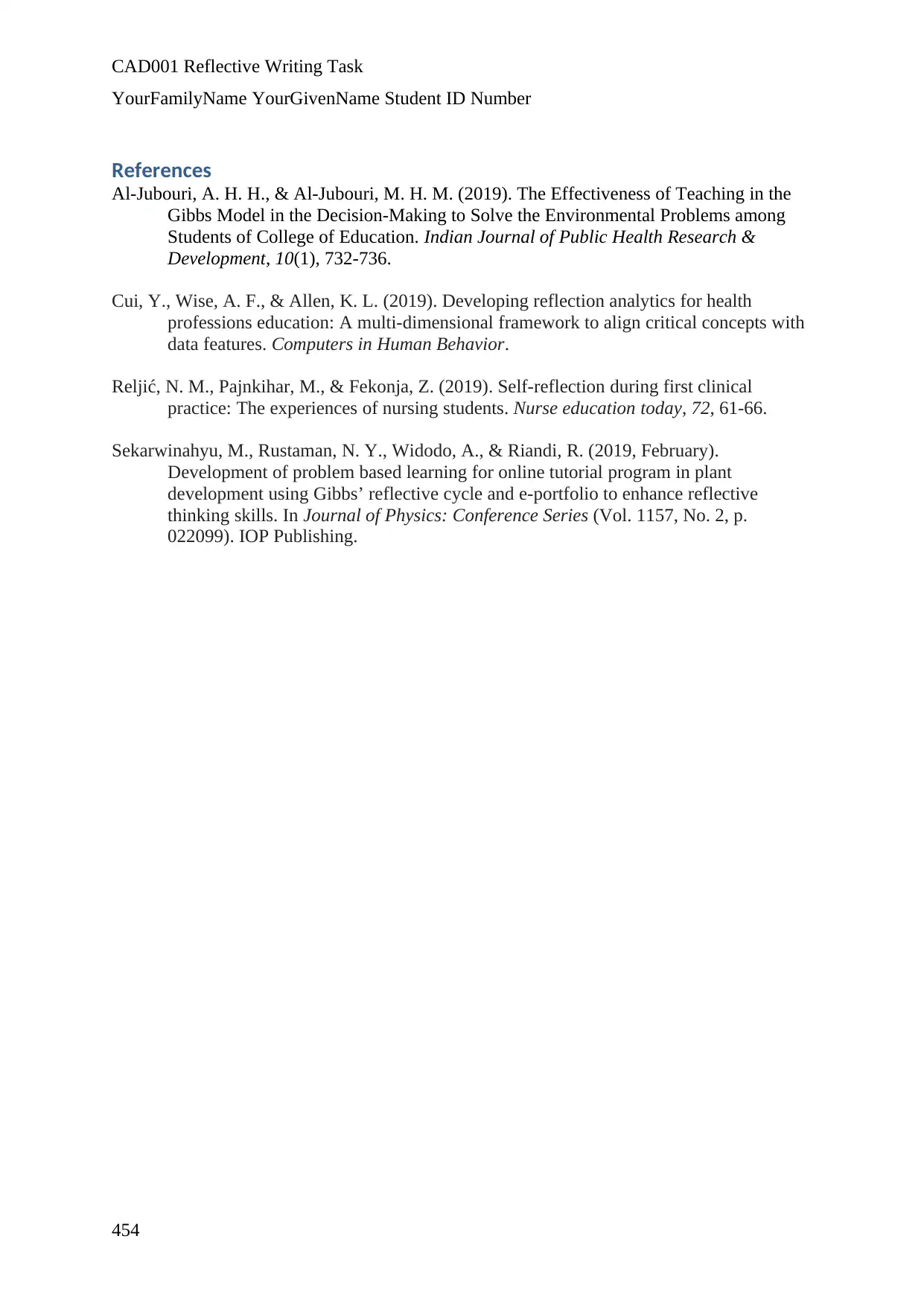CAD001 Reflective Writing: Applying Gibbs' Model to Health Studies
VerifiedAdded on 2023/04/24
|3
|748
|425
Essay
AI Summary
This reflective writing task utilizes Gibbs' Reflective Cycle to analyze the learning experience from an online health studies course. The author describes their feelings and evaluations throughout the course, emphasizing the importance of health knowledge and its impact on personal confidence. The reflection process involves creating an action plan for future learning, incorporating feedback from mentors, and committing to continuous development. The task concludes with a positive outlook, highlighting the intention to apply acquired knowledge and pursue further education, demonstrating a comprehensive understanding of the reflective model and its practical application. Desklib is a great resource for students looking for similar solved assignments.
1 out of 3









![[object Object]](/_next/static/media/star-bottom.7253800d.svg)